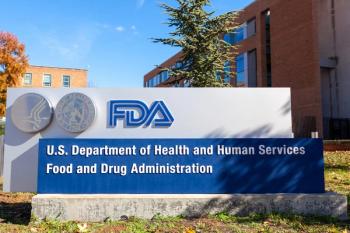
Is azithromycin cardiotoxic?
Azithromycin is a potential COVID-19 treatment, but a study warns it could increase the risk of cardiac events.
According to a study published in JAMA Network Open, researchers from the University of Illinois Chicago found azithromycin, by itself, is not associated with an increase in heart problems.2 However, when taken with certain other drugs that affect the electrical functioning of the heart, findings show Azithromycin could increase the risk of cardiac events.2
Related:
"We found that if taken together with drugs that affect the electrical impulses of the heart, the combination is linked with a 40 percent increase in cardiac events, including fainting, heart palpitations and even cardiac arrest," says study author Haridarshan Patel, PhamD, PhD, in a statement.3
Drugs that affect the interval in the heart’s electrical rhythm are called QT-prolonging drugs. They include blood pressure medications such as ACE inhibitors and beta-blockers, some antidepressants, anti-malaria drugs such as hydroxychloroquine and chloroquine, opioid medications, and even muscle relaxers.3
In 2012, the U.S. Food & Drug Administration warned that azithromycin was linked to cardiac events, but subsequent studies have yielded mixed findings.4
Related:
Study details
A database containing medical data on millions of U.S. patients, with a mean age of 36, was analyzed in the Chicago study. Risk of cardiac events with azithromycin was evaluated against amoxicillin—a drug that has never been linked to cardiac events and has no impact on the QT-interval.3
Researchers found that the likelihood of cardiac events with azithromycin compared with amoxicillin was not significantly higher, and overall, events were low or rare in both groups.2 The most common cardiac events observed were fainting and palpitations.2
However, among patients taking both a QT-prolonging medication and azithromycin together, the risk of cardiac events was 40 percent higher compared with the amoxicillin group.2
"Because both QT-prolonging drugs and azithromycin are so commonly prescribed, the risk for cardiac events due to the combination, while still rare, is serious," says Patel. "Studies looking at using azithromycin to treat COVID-19 or other diseases should very carefully consider its use among patients who are also taking QT-prolonging medications."
References
1. Oldenburg CE, Doan T. Azithromycin for severe COVID-19. The Lancet. Available at
2. Zaroff JG, Cheetham TC, Palmetto N, et al. Association of Azithromycin Use With Cardiovascular Mortality. JAMA Netw Open. 2020;3(6):e208199.
3. Science Daily. Potential COVID-19 drug azithromycin may increase risk for cardiac events: Risks exist if drug is taken with other commonly prescribed medications. 2020 Sept 16, Available at
4. FDA Drug Safety Communication: Azithromycin (Zithromax or Zmax) and the risk of potentially fatal heart rhythms. FDA Safety Announcement. Available at
Newsletter
Want more insights like this? Subscribe to Optometry Times and get clinical pearls and practice tips delivered straight to your inbox.













































.png)


